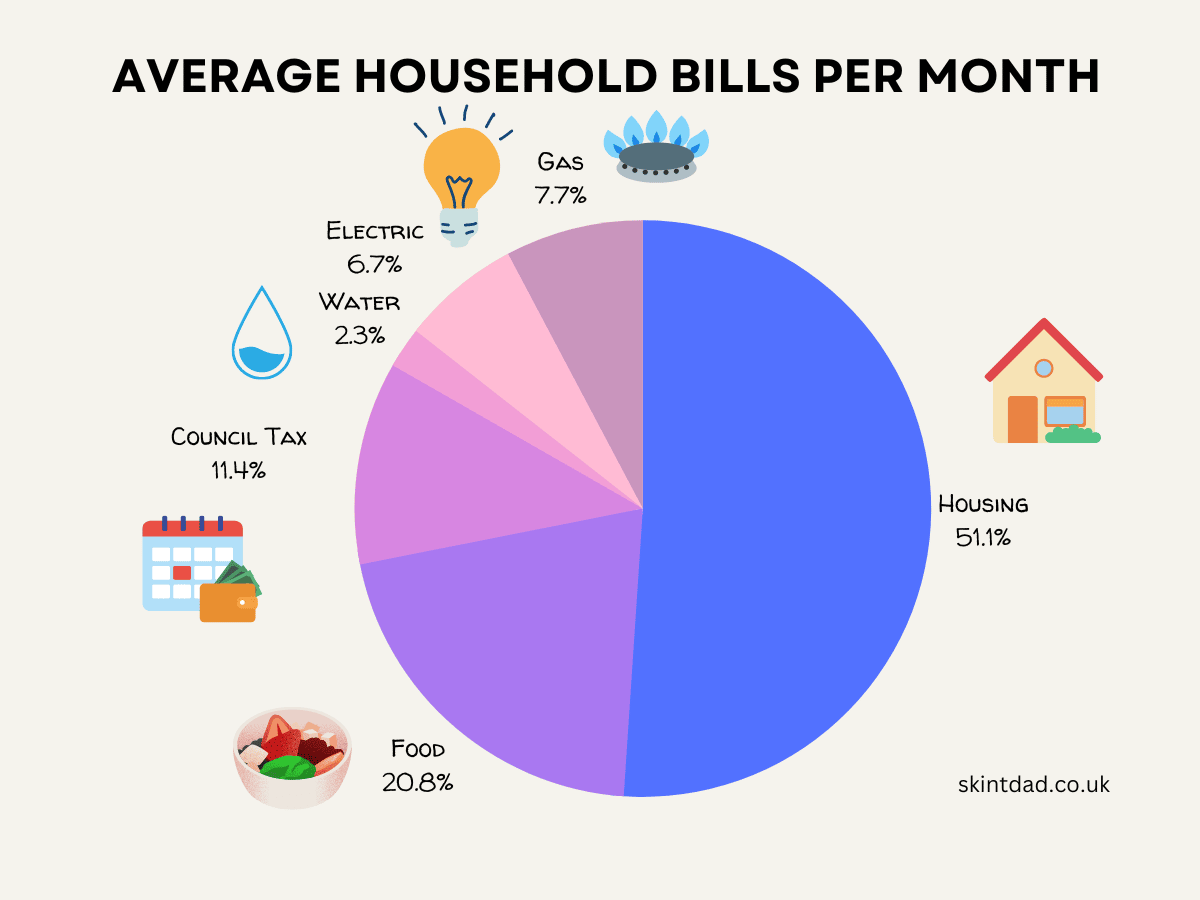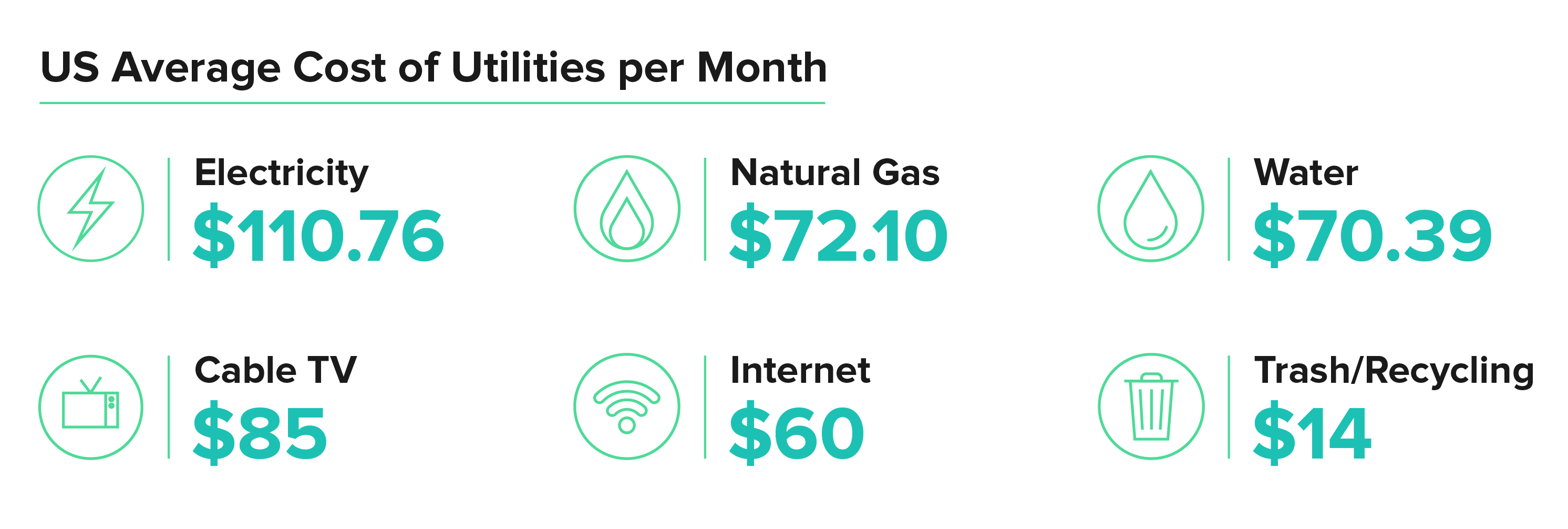Factors Influencing Electricity Bills: Average Dewa Bill For 1 Bedroom 2018

Let’s dive into the electrifying world of electricity bills! It’s not always about the price of a kilowatt-hour (kWh), but rather a complex interplay of factors that determine your bill’s final price tag. Think of it as a dance between your energy consumption habits, the appliances you love, and the weather outside.
Energy Consumption Habits
Your energy consumption habits play a starring role in determining your electricity bill. It’s all about how much electricity you use, and that’s where your daily routine and appliance choices come into play.
- Turning off lights: This seems obvious, but it’s a biggie! Leaving lights on in empty rooms is like throwing money out the window.
- Appliance use: That fancy coffee machine you love? It might be a sneaky energy hog! Be mindful of how often you use appliances and how much energy they consume.
- Heating and cooling: The weather outside can have a huge impact on your electricity bill. Using air conditioning on hot days and heating in the winter can really rack up the costs.
Appliance Usage
Appliances are the unsung heroes (or villains, depending on their energy efficiency) of your electricity bill. They all have different energy consumption levels, so understanding how they work can help you make smarter choices.
- Refrigerator: The fridge is always on, so choose an energy-efficient model. It’s a long-term investment that will save you money in the long run.
- Washing machine and dryer: Washing clothes with cold water and air-drying them can make a big difference in your energy consumption.
- Televisions and computers: Even when they’re not in use, some devices still consume energy. Unplug them when you’re not using them.
Climate
Mother Nature has a say in your electricity bill, too! The climate can significantly affect your energy usage, especially when it comes to heating and cooling your home.
- Hot weather: In hot climates, you’ll likely use more air conditioning, which can lead to higher electricity bills.
- Cold weather: When it’s cold outside, you’ll need to use more heating, which also increases your electricity consumption.
Electricity Tariffs
Electricity tariffs are the different pricing structures that energy providers use to charge for electricity. They can vary based on factors like time of day, usage, and location. Understanding the different types of tariffs can help you choose one that best suits your needs and potentially save money.
- Time-of-use (TOU) tariffs: These tariffs charge different rates for electricity depending on the time of day. For example, you might pay more for electricity during peak hours (when demand is high) and less during off-peak hours (when demand is low).
- Flat-rate tariffs: These tariffs charge a fixed price per kWh, regardless of the time of day. They’re simpler to understand but may not be as cost-effective as TOU tariffs.
- Demand tariffs: These tariffs charge based on your peak demand, which is the highest amount of electricity you use in a specific time period. They’re often used for businesses and industries that have fluctuating energy needs.
Average Electricity Bill Ranges

Let’s dive into the world of electricity bills, specifically for those living in a cozy 1-bedroom apartment in 2018. We’ll explore the typical bill ranges based on location and energy usage, and then compare these to other dwelling sizes. Buckle up, it’s going to be a wild ride!
Typical Electricity Bill Ranges for a 1-Bedroom Apartment in 2018
The average electricity bill for a 1-bedroom apartment in 2018 varied significantly depending on the location and energy usage. Factors like climate, energy efficiency of the apartment, and individual consumption habits played a crucial role in determining the final bill.
It’s important to remember that these are just average ranges, and your actual bill could be higher or lower depending on your specific circumstances.
Real-World Examples of Average Electricity Bills in 2018
To get a better grasp of these ranges, let’s look at some real-world examples from different regions:
- New York City, New York: A 1-bedroom apartment in New York City could expect an average monthly bill ranging from $100 to $200, depending on factors like the age of the building and the energy efficiency of appliances.
- Los Angeles, California: In Los Angeles, a 1-bedroom apartment could see an average monthly bill between $80 and $150, taking into account the warm climate and typical energy usage patterns.
- Chicago, Illinois: A 1-bedroom apartment in Chicago could face an average monthly bill ranging from $120 to $250, influenced by the colder climate and the need for heating during the winter months.
Comparison of Average Electricity Bills for Different Dwelling Sizes in 2018
Naturally, the size of your dwelling plays a significant role in your electricity bill. A 1-bedroom apartment typically consumes less energy than a larger house or multi-bedroom apartment.
- 2-Bedroom Apartment: The average electricity bill for a 2-bedroom apartment in 2018 could be roughly 20% to 30% higher than a 1-bedroom apartment, due to the increased square footage and potential for additional appliances.
- Single-Family House: A single-family house, with its larger size and more appliances, would typically see an average electricity bill significantly higher than a 1-bedroom apartment, potentially ranging from 50% to 100% higher.
Tips for Reducing Electricity Consumption

You’ve got your average bill, you’ve understood the factors that influence it, and now you’re ready to conquer those pesky kilowatt-hours! It’s time to roll up your sleeves and get those energy-saving tips flowing.
Appliance Efficiency, Average dewa bill for 1 bedroom 2018
Using energy-efficient appliances can significantly reduce your electricity bill. Think of it as investing in your wallet’s future, one appliance at a time! Here are some ways to make your appliances work harder for you:
- Choose Energy Star Certified Appliances: These bad boys are the superheroes of the appliance world, boasting higher energy efficiency ratings. Look for the Energy Star label when shopping for new refrigerators, washing machines, dishwashers, and even your trusty old TV.
- Wash Clothes in Cold Water: Heating water for laundry is a major electricity hog. By using cold water, you’ll save a ton of energy and your clothes will thank you for it (especially those delicate ones).
- Air Dry Clothes: Skip the dryer and let your clothes air dry whenever possible. It’s a free and eco-friendly way to dry your clothes, plus it saves you money! You can even hang them outside for a little fresh air, just like Grandma used to do.
- Run Full Loads in the Dishwasher and Washing Machine: These appliances are like those friends who only want to hang out in big groups. Running them with full loads saves energy, as they use the same amount of energy whether they’re full or half-empty.
Lighting Strategies
Lighting is a big electricity guzzler, so it’s time to shine a light on some smart strategies:
- Swap Incandescent Bulbs for LEDs: LED bulbs are the rockstars of the lighting world. They use less energy, last longer, and come in a wide range of colors and styles. Plus, they’re super-efficient, which means you’ll be saving money in the long run.
- Use Natural Light: Open your curtains and blinds during the day to let the sun’s rays flood your apartment. It’s free, it’s bright, and it’s a great way to reduce your reliance on artificial light.
- Use Timers or Motion Sensors: Set timers for your lights, especially in rooms you don’t use frequently. Motion sensors are also great for hallways and bathrooms, as they only turn on when needed.
Household Habits
Small changes in your daily habits can make a big difference in your energy consumption:
- Unplug Devices When Not in Use: Even when turned off, devices like chargers, TVs, and computers can still use a small amount of energy, called “phantom load.” Unplug them when you’re not using them to save energy and money.
- Use Power Strips: Power strips with on/off switches are a great way to cut off the power to multiple devices at once. Just flip the switch and say goodbye to phantom load!
- Lower Your Thermostat in the Winter and Raise it in the Summer: Adjusting your thermostat by just a few degrees can make a big difference in your energy bill. For every degree you lower the thermostat in the winter, you can save about 1% on your heating costs.
- Seal Air Leaks: Air leaks around windows and doors can let in cold air in the winter and hot air in the summer, forcing your HVAC system to work harder. Seal these leaks with weatherstripping or caulk to keep your apartment comfortable and energy-efficient.
- Use Fans Instead of Air Conditioning: Fans are a great way to cool down your apartment without using a lot of energy. In the summer, use ceiling fans to circulate the air and create a breeze.
Average dewa bill for 1 bedroom 2018 – The average DEWA bill for a 1-bedroom flat in 2018, a time when the world felt a little less chaotic, was a constant reminder of the cost of living. Perhaps a cozy 1-bedroom flat in Stirling, 1 bedroom flat stirling , would have offered a different perspective, a simpler existence.
But even in a smaller space, the bills would still arrive, a tangible reminder of the realities of life, a gentle echo of the past.
The average DEWA bill for a 1-bedroom apartment in 2018 might have been a fleeting memory, a ghost of expenses past, but the search for affordable housing remains a constant. If you’re looking for a 1-bedroom apartment in Greenville, 1 bedroom apartments greenville can offer a glimpse into the current landscape of rental costs, perhaps even helping you estimate what your DEWA bill might look like today.